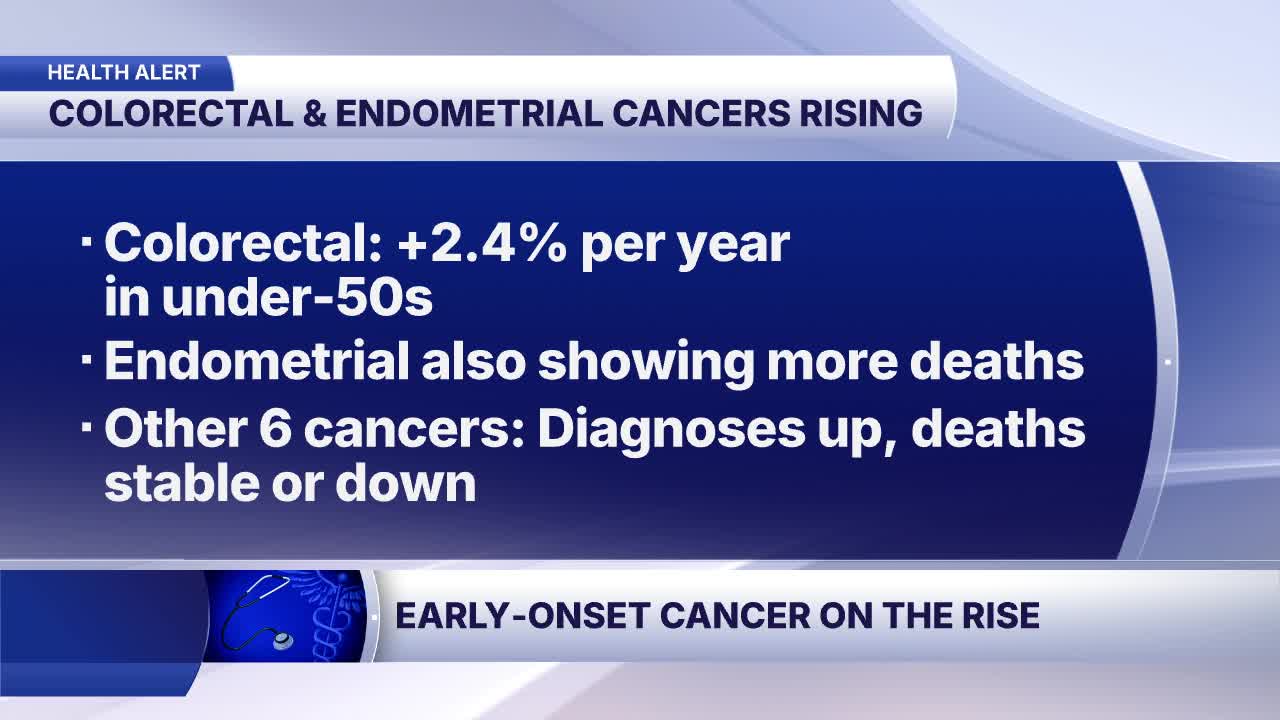(WXYZ) — In today’s Health Alert, cancer rates in younger adults have raised concerns. A new study looked at the fastest rising cancers in people under 50 to find out whether rates are truly rising or if the higher numbers reflect more diagnoses.
The study looked at the eight fastest-rising cancers in adults under 50, which have doubled since 1992. They include thyroid, anal, kidney, small intestine, colorectal, endometrial, pancreatic cancer, and myeloma.
Now, only two of the eight cancers have shown an actual increase in deaths — colorectal and endometrial cancers. I see colorectal cancer frequently in my private practice, and it can be devastating. Unfortunately, rates have gone up 2.4% per year in people aged 50 and under. As for the other six cancers, even though diagnoses are rising, the good news is that deaths have stayed flat or even dropped.
It’s also worth noting that invasive breast cancer — even though it’s not in the top eight — has been rising faster in women under 50 compared to women over 50. It’s been increasing about 1.4% per year from 2012 to 2021, and continues to be the most common early-onset cancer.
Some of the rise in colorectal cancer cases may come from tumors that weren’t always counted before. Changes in classification, earlier screening starting at age 45, and better detection make the numbers look higher, but the increase in deaths shows at least part of this rise is real.
For endometrial cancer, both new cases and deaths have risen along with increasing obesity rates and fewer hysterectomies, which adds to the risk.
So we can’t ignore lifestyle factors, as they play a role — especially for these two cancers. Diet, obesity, and physical inactivity contribute to a higher risk for many cancers.
But overall, the study’s authors feel that much of the rise is due to better and more routine screening, along with advanced imaging that finds tumors earlier, even ones that might never have caused problems.
So, early detection is saving lives, especially for cancers like breast cancer. Deaths have been cut in half because of earlier detection and improved treatments, including immunotherapies. For young adults, knowing your family history, staying up-to-date with recommended screenings, and healthy lifestyle habits remain your best protection.




